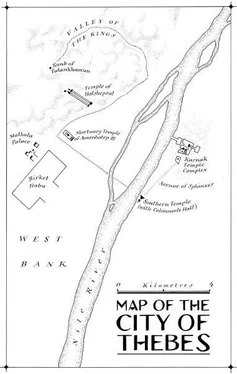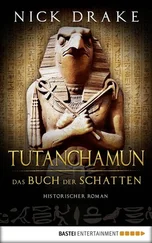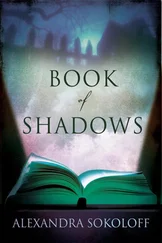Nick Drake - Tutankhamun - The Book of Shadows
Здесь есть возможность читать онлайн «Nick Drake - Tutankhamun - The Book of Shadows» весь текст электронной книги совершенно бесплатно (целиком полную версию без сокращений). В некоторых случаях можно слушать аудио, скачать через торрент в формате fb2 и присутствует краткое содержание. Жанр: Исторический детектив, на английском языке. Описание произведения, (предисловие) а так же отзывы посетителей доступны на портале библиотеки ЛибКат.
- Название:Tutankhamun: The Book of Shadows
- Автор:
- Жанр:
- Год:неизвестен
- ISBN:нет данных
- Рейтинг книги:4 / 5. Голосов: 1
-
Избранное:Добавить в избранное
- Отзывы:
-
Ваша оценка:
- 80
- 1
- 2
- 3
- 4
- 5
Tutankhamun: The Book of Shadows: краткое содержание, описание и аннотация
Предлагаем к чтению аннотацию, описание, краткое содержание или предисловие (зависит от того, что написал сам автор книги «Tutankhamun: The Book of Shadows»). Если вы не нашли необходимую информацию о книге — напишите в комментариях, мы постараемся отыскать её.
Tutankhamun: The Book of Shadows — читать онлайн бесплатно полную книгу (весь текст) целиком
Ниже представлен текст книги, разбитый по страницам. Система сохранения места последней прочитанной страницы, позволяет с удобством читать онлайн бесплатно книгу «Tutankhamun: The Book of Shadows», без необходимости каждый раз заново искать на чём Вы остановились. Поставьте закладку, и сможете в любой момент перейти на страницу, на которой закончили чтение.
Интервал:
Закладка:
‘I wonder if he has shown himself yet,’ I said to Simut, as we stood side by side, considering this intimidating vessel.
‘No. He will wish to make the most of his grand entrance into the palace.’
‘Do you know him personally?’ I asked.
Simut stared at the ship.
‘I was a cadet in Memphis when he was already Chief Deputy of the Northern Corps. I remember he came to address a private feast for the promising officers of the Ptah Division. He had already married into the royal family. Everyone knew he would soon become general, and he was treated almost as if he were King himself. His speech was interesting. He said the priests of Amun had a profound flaw: their enterprise was founded on wealth, and in his view, in human beings the desire for wealth was never satisfied, but would always overreach itself and turn into decadence and corruption. He argued that this would necessarily and inevitably create a cycle of instability in the Two Lands, and therefore make us vulnerable to our enemies. He said the army had a sacred duty to break this cycle, by enforcing the rule of order. But it could only maintain the right to do so by sustaining itself in absolute moral purity.’
‘When men speak of moral purity, what they mean is, they have hidden their moral impurities beneath an illusion of virtue,’ I said.
Simut glanced at me.
‘You speak well for a Medjay officer.’
‘I know whereof I speak,’ I replied. ‘Men are not capable of absolute moral purity. And that is a good thing, in my view, because if they were they would not be human.’
Simut grunted, and continued to stare at the great ship in the harbour.
‘He also said something about the royal family which I have never forgotten. He said their priority was the perpetuation of their dynasty as the representatives of the Gods on earth. And naturally when that priority coincided with the interests of the Two Lands, then all was well. But he said when there was disruption or dissent, or when the royal family failed in its divine duties, the Two Lands should identify its own needs and values as paramount. Not those of the royal family. And therefore only the army, which desired neither power nor wealth for itself, but only the assertion of our order throughout the world, would have a sacred obligation to enforce its rule, for the sake of the Two Lands’ survival.’
‘And what do you think he meant by “disruption or dissent”?’ I asked.
‘He was implying the dangers inherent in the inheritance of the Crowns by a King too young to rule in any meaningful sense, under the aegis of a Regent whose interests were obscure. But I think he really meant something else.’
He lowered his voice.
‘I think he meant the private continuity of the Aten faith in the family. The father’s banished God. That dangerous religion had already caused terrible chaos once in living memory, and it could not be allowed to rise again. He implied the army would not tolerate any sign of its return to public life.’
‘I think you are right. And that, too, remains Ankhesenamun’s flaw. For like her husband, it is difficult for her to disassociate herself not just from the failings of her father, but from the root of the problem: the banished religion.’
Ankhesenamun was with her ladies of the chamber, who were preparing her for the formal reception. The rich scents of perfumes and oils drifted in the quiet air. Little gold pots and blue and yellow glass containers were opened before her. She held a fish in her hands made of blue and yellow glass, and was pouring some intensely scented essence from its pursed lips.
‘Horemheb has requested an audience. At noon today,’ she said.
‘As we expected.’
She glanced at me, and then returned to a careful consideration of her appearance in the polished copper mirror. She wore a beautiful braided wig of short, tightly curled hair, and a pleated robe of finest linen, fringed with gold, which was tied beneath her right breast, enhancing her figure. On her arms she wore bracelets and gold winding cobras. From her neck, on gold thread so fine it was almost invisible, hung several pendants and an elaborate gold pectoral showing Nekhbet the Vulture Goddess, holding the symbols of eternity and with her blue wings spread out protectively. Then her assistants placed a remarkable garment around her shoulders, a shawl made of many small gold discs. She turned about, and glittered dazzlingly in the candlelight. Next, her assistants slipped on her sandals-thongs of delicate gold, straps decorated with small gold flowers. And finally the tall crown was placed on her head, and held there by a gold band decorated with protective cobras. When I had last seen her dressed in the royal robes, she had looked anxious. Today she looked supremely regal.
She turned to face me.
‘How do I look?’
‘You look like the Queen of the Two Lands.’
She smiled, pleased. She looked down at the pectoral.
‘This belonged to my mother. I hope some of her great spirit will protect me now.’
Then, sensing my sombre mood, she looked at me once more.
‘Something has happened, hasn’t it?’ she asked suddenly.
I nodded. She understood, and dismissed her ladies. When we were alone, I told her the news of the death of Mutnodjmet. She sat very still, tears running down her cheeks, marring the kohl and malachite make-up that had been so carefully applied. She shook her head, over and over.
‘I failed her. How could this happen in the palace, while I was here, sleeping?’
‘Sobek is very clever.’
‘But Ay and Horemheb killed her as much as this evil, repulsive man. They trapped her, and maddened her. And she was the last of my family. Now I am alone. Look at me.’
She glanced at her royal outfit.
‘I am nothing but a statue for these garments.’
‘No, you are far more. You are the hope of the Two Lands. You are our only hope. Without you, the future is dark. Remember that.’
When the Queen entered, a thousand people bowed low and fell silent. The palace reception hall had been luxuriously prepared for Horemheb’s visit. Incense burned in copper bowls. Vast, elaborate bouquets of flowers were set in vases. The Palace Guard lined the way to the throne. I noticed Ay was not present. The Queen ascended the dais, faced her officials, and sat down. And then we all waited in a silence that had to be endured for longer than anyone expected. The general was late. The dripping of the water clock measured the passing of time and the increasing humiliation of his absence. I glanced up at the Queen. She knew this game, and maintained her composure. And then finally we heard his military fanfare, and suddenly he was striding down the chamber, followed by his lieutenants. He stopped before the throne, stared arrogantly at the Queen, and then bowed his head. She remained seated. The dais still gave her the advantage of height over the general.
‘Look up,’ she said quietly.
He did so. She waited for him to speak.
‘Life, prosperity and health. My loyalty is known throughout the Two Lands. I place it, and my life, at your royal feet.’
His words echoed around the chamber. A thousand pairs of courtly ears listened for every nuance.
‘We have long trusted your loyalty. It is more than gold to us.’
‘It is loyalty that encourages me today,’ he replied ominously.
‘Then speak your mind, general.’
He glanced at her, turned back to the chamber, and spoke to the entire gathering.
‘What I wish to speak of is for the Queen’s ears alone, and would benefit from a more private setting.’
She inclined her head.
‘Our ministers are as one with us. What matter could there be which would not be for their ears also?’
He smiled.
Читать дальшеИнтервал:
Закладка:
Похожие книги на «Tutankhamun: The Book of Shadows»
Представляем Вашему вниманию похожие книги на «Tutankhamun: The Book of Shadows» списком для выбора. Мы отобрали схожую по названию и смыслу литературу в надежде предоставить читателям больше вариантов отыскать новые, интересные, ещё непрочитанные произведения.
Обсуждение, отзывы о книге «Tutankhamun: The Book of Shadows» и просто собственные мнения читателей. Оставьте ваши комментарии, напишите, что Вы думаете о произведении, его смысле или главных героях. Укажите что конкретно понравилось, а что нет, и почему Вы так считаете.











